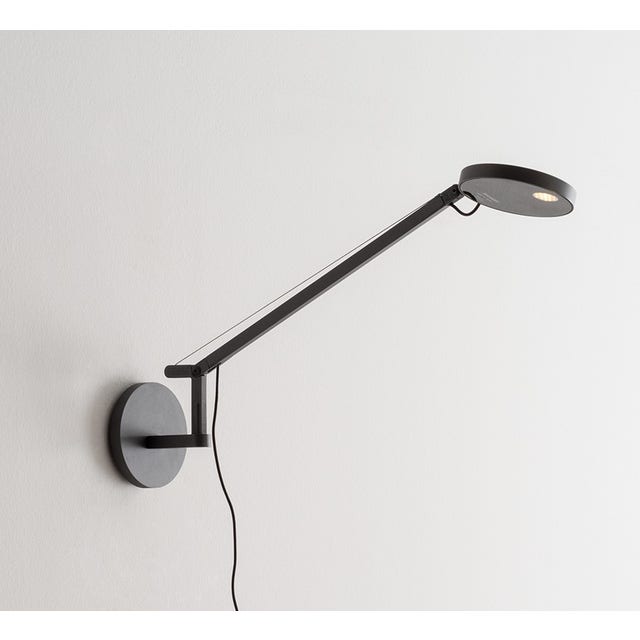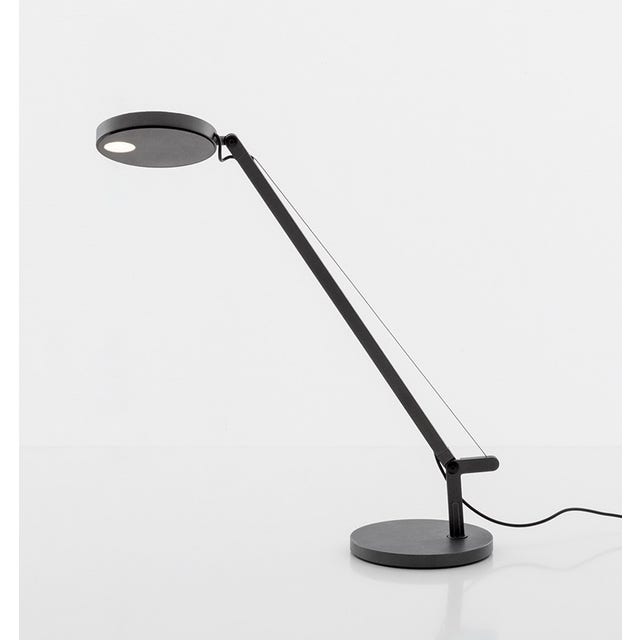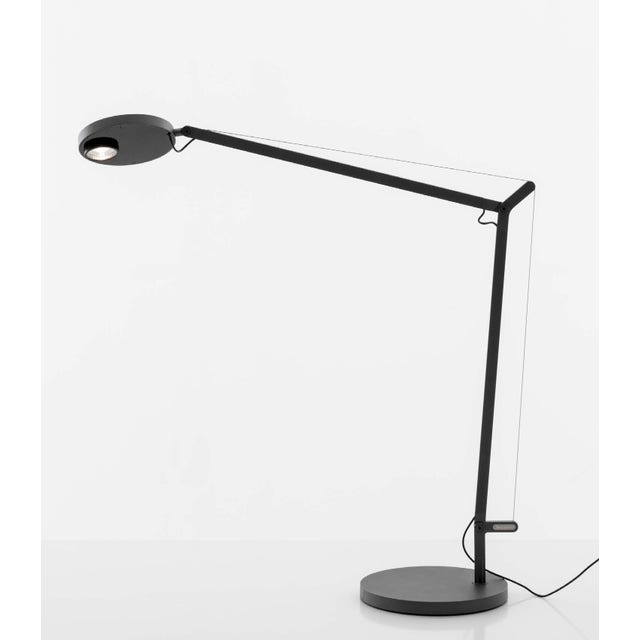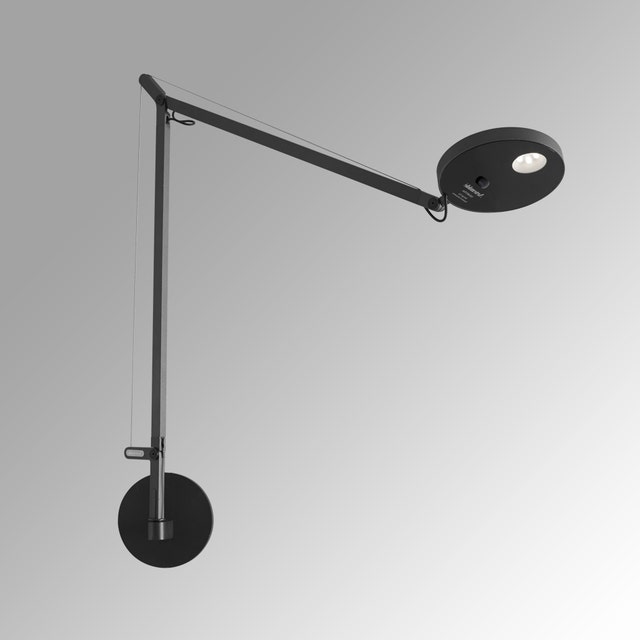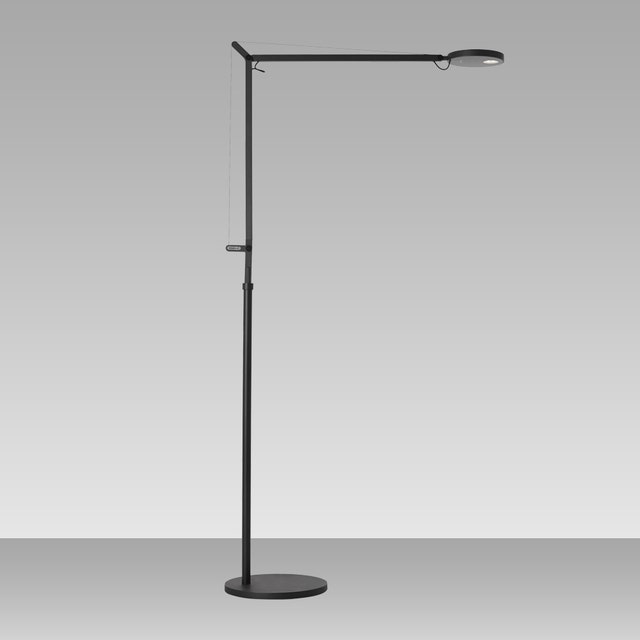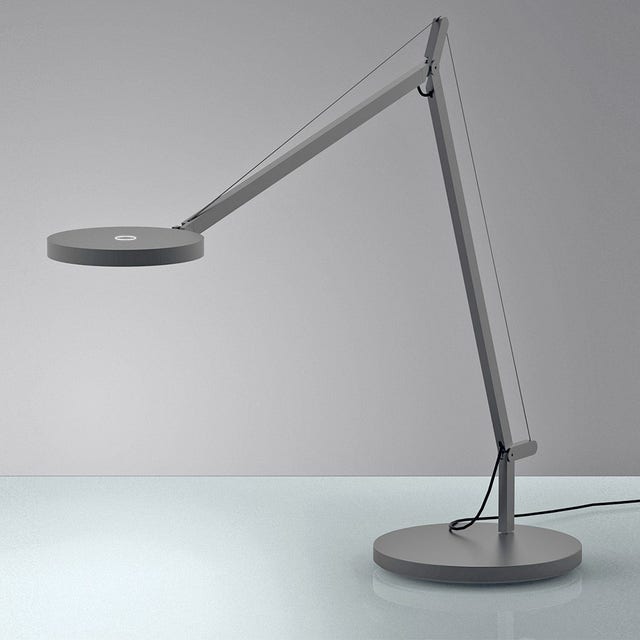Artemide Demetra Wall Spot Lamp
DEMETRA SPOT Wall base, head and arms in painted aluminum. Adjustable arms and head. With light intensity regulator, dimmer Microswitch.
MEASUREMENTS:
- Width: 13 cm / 5.1 inch
- Depth: 19.5 cm / 7.75 inch
MATERIALS:
- Head in painted aluminum
- Lower head diffuser in thermoplastic
- Wall bracket in aluminum
HELPFUL NOTES:
- 10.6W LED-I 2700K >90 CRI
- 10.58W LED-I 3000K >80CRI
- Integrated light source
- Dimmer on head (with dimmer switch version), otherwise on/off
- Tiltable and rotatable head
- cUL, UL Listed

Naoto Fukasawa
Japan, 1956
Naoto Fukasawa was born in Yamanashi, Japan, in 1956 and graduated from Tama Art University in 1980. His career began at Seiko Epson, where he designed products such as wrist TVs and mini printers using micro-technology.
He then moved to the United States and in 1989 joined the San Francisco design firm ID Two, the predecessor to IDEO. There, he worked on a number of products related to Silicon Valley's computing and electronics industry. He was also involved in the development of a design language and design concept for Apple.
Fukasawa has worked on product development for many well-known brands and companies around the world, winning numerous awards for his efforts. His affiliation with Magis produced the Déjá-vu family of home furnishings, which is distinguished by its use of D-shaped aluminum extrusions. "This one distinctive extrusion enabled us to create a whole family of products," says Fukasawa.
In 2007 the Déjá-vu chair won Magis the Interior Innovation Award (Best Item), IMM, Cologne and in 2008 it was nominated for the Designpreis der Bundesrepublik in Germany.

Founded in Milan by Ernesto Gismondi and Sergio Mazza in the 1960s, Artemide is a worldwide leader in lighting design, committed to technological innovation, research, and human interaction. Artemide aligned with the Memphis Design Movement and was an early proponent of LED technology. Ethical conduct and social responsibility are at the heart of Artemide’s values.
Artemide’s expansive catalog spans Logico’s organic and elegant hand-made blown glass diffusers to the Castore family’s clean and simple spheres. They have created award-winning, iconic collaborations with some of the world’s most talented designers, including Naoto Fukasawa, David Chipperfield, Zaha Hadid, Jean Nouvel, Karim Rashid, and Herzog & De Meuron, upholding Italy’s reputation for excellence and innovation.
This item qualifies for free door-to-door delivery within Canada, with a few exceptions:
- Orders $180 or less are charged a $35 small order fee at checkout.
- Additional charges apply for Remote Delivery Areas including the Yukon, Northwest Territories, Nunavut, and other remote locations outside of major city centres.
- Small items will be delivered by FedEx or other courier service in your area.
- Large items will be delivered by freight service. This is standard curbside delivery; meaning the driver will not haul up an incline or up stairs, and it will be your responsibility to bring the item inside, complete any assembly, and remove packaging debris.
- For a White Glove Delivery quote which includes unpackaging and assembly, please make a note in the Comments section during Checkout and we will get back to you as soon as possible.
For further information on our shipping policies click here.
For further information on returns + refunds click here.









